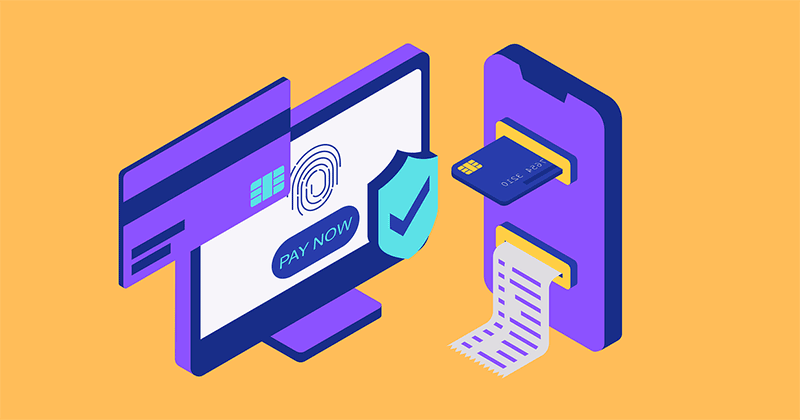If you’re thinking of studying information technology, you might wonder what exactly you’ll get from the course.
An IT course is about building foundations for a career centred on technology. Each subject helps develop general competencies or specific skills for tech-related jobs.
Demand in this field is strong, with Australia projected to employ around 200,000 programmers alone by 2025. Our job guide for IT details 20+ career opportunities.
While every program is unique in some way, let’s go through what you’ll study in an IT course.
Information Technology as a Course

Information Technology (IT) is a field of study about using technology to process, manage, and disseminate information. For a university course in Australia, an IT program covers topics such as computer hardware and software, programming, data management, networking, and web development.
Information technology courses provide students with a balance of theoretical knowledge and hands-on experience. You will likely do a significant amount of coding and programming, learning languages such as Python and JavaScript. Students learn theory as well, such as theories of computation, automata, and algorithms. Project work is often emphasised, such as developing software or algorithms for apps.
An IT course may also explore topics such as project management, information systems, and IT ethics. Depending on the university, students may have the opportunity to specialise in a specific discipline, such as data analytics, cyber security, or game development.
Organisation of a Computer

It seems obvious but you will, of course, learn about the organisation and components of computers. Instructors will take you through everything from the parts of a computer, the key elements of a computer and, more importantly, how they function.
You’ll study the key terms and parts and be able to explain how they contribute to a computer’s performance. Graduates are able to name common problems with specific parts and suggest basic fixes for problems.
System Software
Students will learn about various system software. Initially, you’ll learn about how they function and are managed. You may eventually look at developing system software of your own. Students learn key terminology and build knowledge of how system software affects customer experience and their use of computers.
Trends in Computing Technologies
Most degrees will at least have a nod towards trends in computing technologies. Young students should know where computer technology is heading before they graduate. Appreciating this context puts them at the cutting edge of technology development before joining the field.
You’ll learn about what’s being developed, what’s new, and what’s to come. The focus here is on the future, preparing you for an ever-changing industry once you’ve completed your studies.
Web Development

Web development is a common area of study in an IT program. The field is about creating and maintaining websites, involving design as well as functionality aspects.
Web developers use programming languages and technologies to create websites, including HTML, CSS, JavaScript, and back-end languages such as PHP, Python, and Ruby. In an IT course, web development is often taught as a module, or group of modules, covering topics such as HTML and CSS layout, JavaScript, and frameworks like React, Angular, and Vue.js.
In a web development course, students will usually work on projects that involve building a website or web application from the ground up, often under the guidance of an instructor or mentor.
Budding developers may also learn about web server administration, hosting, and how to work with a content management system like WordPress, Joomla or Drupal. Developers also often learn about web standards, accessibility, and best practices for creating responsive, user-friendly websites.
Data Management and Analysis
Data management is important in any IT bachelor degree. Students learn how computers are used to manage and analyse data.
Data science is fast becoming one of the core disciplines within computer science and IT, with a fast-growing job market. Students learn how big data is used by data scientists to solve business problems.
Another part of this umbrella subject is understanding data structure and algorithms. Knowing this will help you solve problems with computers and design and implement your own effective algorithms to help with the storing and analysis of key data.
Cyber Security Threats and Management

There’s nothing more important for a student doing an IT degree than cybersecurity studies right now. To become a competent professional in the field, you need to start by gaining an understanding of the functions of cyber security.
Students learn about threats, resolutions, and auditing in relation to specific IT systems. You also learn key cyber security terms and how to implement secure systems to keep computers, data, and information safe from cyber criminals.
Related: Cyber Security Analyst (What They Do and How to Become One)
How to Find the Right IT Course for You
As you can see, there’s lots to learn in a Bachelor of Information Technology or Bachelor of Computer Science degree. And what we’ve covered here barely scratches the surface to be honest. Each program offers different subjects.
But the subjects listed provide a solid overview of what to expect. Before signing up to any course, do your research and make sure they cover the subjects you’re most interested in.

To be successful, students should aim to develop more than just information technology skills. For example, IT professionals often work closely with other departments and stakeholders within an organisation. Understanding business objectives can help you make your work more impactful.